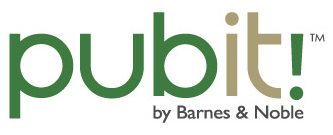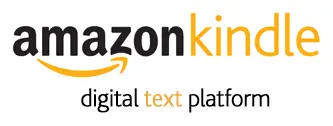You may have heard this week that Barnes & Noble has upped its game when it comes to the fight against Amazon’s Kindle. Amazon has its Digital Text Platform to help writers self-publish their work both in ebook form, and now Barnes & Noble has Pubit, which does the same thing, but claims to be far easier and offer more advantages for writers.
Is Pubit all that and a box of chips? Depends on how you use it. Let’s look at the details.
Price
 The pricing for Pubit structure is set to a graduating percentage of revenue that authors keep, which is clearly structured to encourage writers to price their books under $10. If your book is priced between $2.99 and $9.99, you’ll get 65% of royalties. If your book is less than $2.99 or more than $9.99, you’ll get just 40%. Amazon’s royalty share is split at the exact same price points, but instead of 65/40, Amazon offers 70/35. It’s a marginal difference at the end of the day, and both publishers have their maximum book price set to $200. Neither service allows you to sell your ebook for free (for obvious reasons — these juggernauts need to make a profit).
The pricing for Pubit structure is set to a graduating percentage of revenue that authors keep, which is clearly structured to encourage writers to price their books under $10. If your book is priced between $2.99 and $9.99, you’ll get 65% of royalties. If your book is less than $2.99 or more than $9.99, you’ll get just 40%. Amazon’s royalty share is split at the exact same price points, but instead of 65/40, Amazon offers 70/35. It’s a marginal difference at the end of the day, and both publishers have their maximum book price set to $200. Neither service allows you to sell your ebook for free (for obvious reasons — these juggernauts need to make a profit).
Advantage: none.
Timeframe
Amazon promises that ebooks published via DTP are available for sale on Amazon.com within 48 hours after you complete the publishing process. Pubit takes “24-72 hours.”
Advantage: a slight edge goes to Amazon.
Formats
 Digital Text Platform claims to support .DOC, .PDF, .TXT and .EPUB files, but admits to having the best luck with .EPUB and files formatted using HTML. I myself have witnessed many instances of .DOC and .PDF files that were transformed into Kindle ebooks that were frankly, with major spacing issues and an overall ugly layout. DTP just doesn’t handle stuff like Word and Adobe formatting all that well, so taking the time to create your own .EPUB file that’s properly formatted is the best way to go.
Digital Text Platform claims to support .DOC, .PDF, .TXT and .EPUB files, but admits to having the best luck with .EPUB and files formatted using HTML. I myself have witnessed many instances of .DOC and .PDF files that were transformed into Kindle ebooks that were frankly, with major spacing issues and an overall ugly layout. DTP just doesn’t handle stuff like Word and Adobe formatting all that well, so taking the time to create your own .EPUB file that’s properly formatted is the best way to go.
Pubit, on the other hand, has an online converter that (from what I’ve seen and heard so far) appears to work very well for .DOC, .RTF, .TXT, and .HTML files. Pubit offers a Nook emulator as part of the upload/conversion process, so you can preview what your finished ebook will look like.
Advantage: Pubit.
Distribution
Amazon’s Kindle format may be all the rage, but it doesn’t play nice with other ereaders. On the other hand, virtually every device now has Kindle software available to download and use for free — be it your smartphone, laptop, or iPad — so you don’t have to own the actual Kindle ereader device to buy ebooks from Amazon. Barnes & Noble’s model is very similar, placing your ebook among their online catalog of books, which can be accessed via the Nook device or their free Nook software for all devices. But what B&N has that Amazon doesn’t is brick-and-mortar stores. Take your portable device into a Barnes & Noble store, and you can peruse any ebook in their online catalog in full for free, for up to an hour, and there’s no limit to the number of ebooks you can do this with. Nook also offers lending technology, that lets you share a purchased ebook from your library with a friend for up to 14 days.
With DTP, your book is automatically added to Amazon’s vast catalog of products; it’s good to be findable on such a humongous database as Amazon’s, yet this advantage can be an equal disadvantage, causing you to easily get lost among listings for not just books, but every product known to man. B&N, on the other hand, is know for exactly one thing: books. Sure, they sell some other products like DVDs and CDs, but you think of Barnes & Noble, and you’re thinking of books. There’s a book-centric identity there that Amazon is far too diversified to match. And you don’t have to worry about your ebook showing up in search results next to hiking boots, printer ink cartridges, or kitty litter.
Advantage: Pubit.
I have to give Barnes & Noble’s Pubit an overall usefulness score that’s higher than Amazon’s. It’s not drastically higher, but it does offer a number of benefits that Amazon doesn’t.
But the reality of it all is that if you’re serious about ebook self-publishing, you’re going to want to sell from Amazon and Barnes & Noble both. Fortunately, selling from the latter just got a whole lot easier.

Leave a Reply